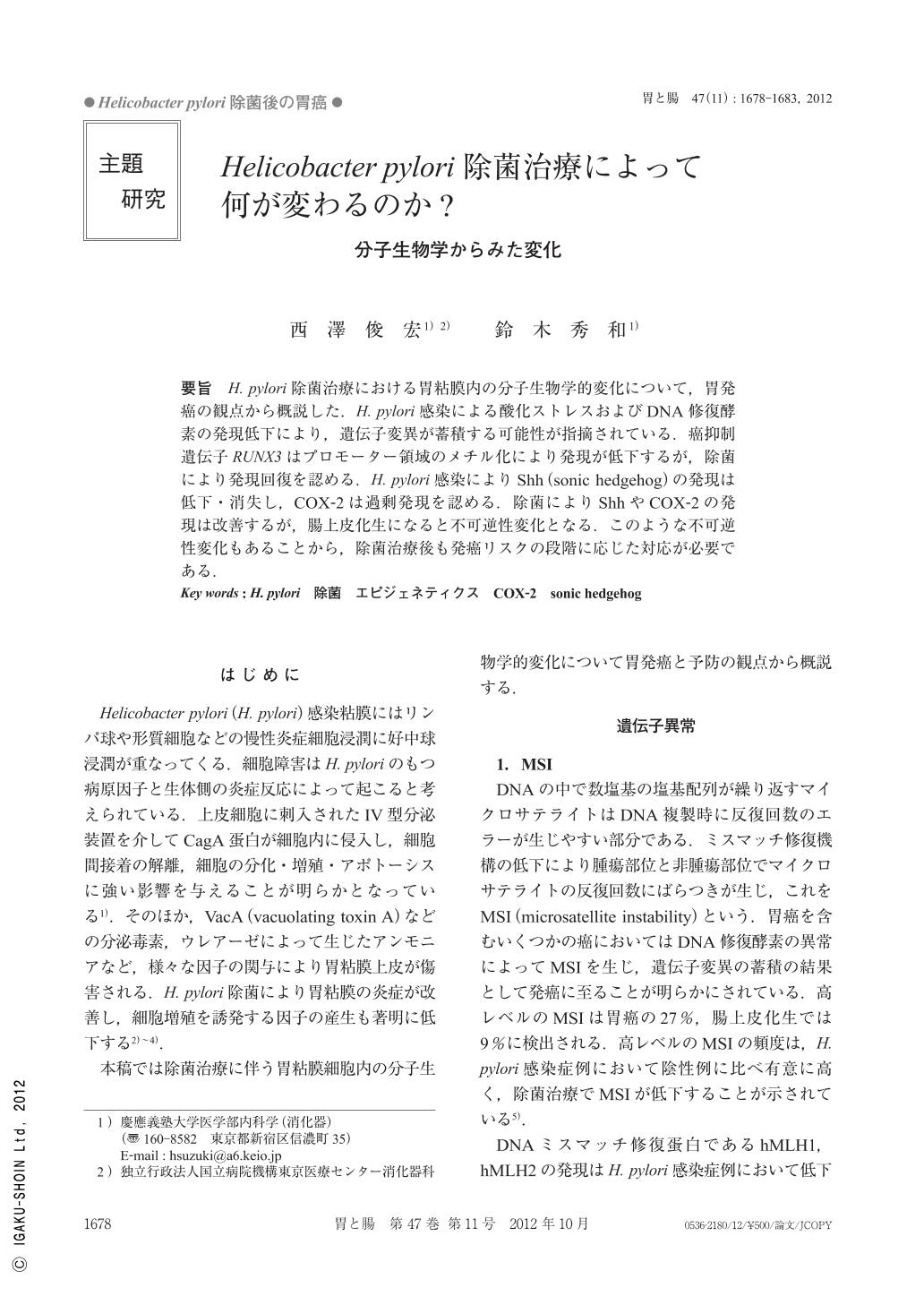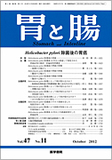Japanese
English
- 有料閲覧
- Abstract 文献概要
- 1ページ目 Look Inside
- 参考文献 Reference
- サイト内被引用 Cited by
要旨 H. pylori除菌治療における胃粘膜内の分子生物学的変化について,胃発癌の観点から概説した.H. pylori感染による酸化ストレスおよびDNA修復酵素の発現低下により,遺伝子変異が蓄積する可能性が指摘されている.癌抑制遺伝子RUNX3はプロモーター領域のメチル化により発現が低下するが,除菌により発現回復を認める.H. pylori感染によりShh(sonic hedgehog)の発現は低下・消失し,COX-2は過剰発現を認める.除菌によりShhやCOX-2の発現は改善するが,腸上皮化生になると不可逆性変化となる.このような不可逆性変化もあることから,除菌治療後も発癌リスクの段階に応じた対応が必要である.
In this article, we overviewed roles of Helicobacter pylori(H. pylori)infection on some of the important events in gastric carcinogenesis and discussed whether these cellular and molecular events are reversible after cure of the infection. H. pylori increases risks of genetic instability and mutations due to reactive oxygen species. Epigenetic silencing of tumor suppressor genes such as RUNX3 and loss of sonic hedgehog expression induce the phenotype change of gastric glands to those with intestinal metaplasia. Several studies have shown that the COX-2(cyclooxygenase-2)gene is overexpressed in H. pylori gastritis and gastric cancer, suggesting a possible role of COX-2 in gastrointestinal carcinogenesis. It is important that most of the above phenomena are reversed after the cure of the infection. However, some of them including overexpression of COX-2 and loss of sonic hedgehog continue to exist and may increase risks for carcinogenesis in the metaplastic mucosa even after successful H. pylori eradication. Thus, H. pylori eradication can't be said to completely abolish the risk for gastric carcinogenesis.

Copyright © 2012, Igaku-Shoin Ltd. All rights reserved.


